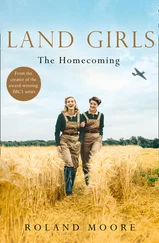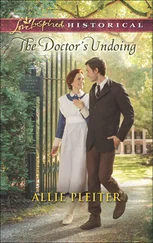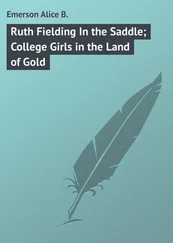‘He was rude first,’ she began, but stopped herself before she made things worse. Mother was right: she had been trained to show better character than she had today. The newspaper article had fired her up, but she should have shown restraint and not retaliated. Mother was only trying to help and now she was being ungrateful.
‘I hope when you write to him you show him more interest, and gratitude for what he’s doing for the country.’
‘Of course. But would you at least agree to think about me doing some war work?’
‘We have pressing issues closer to home to tend to.’
What could be more pressing than putting food on the table, and keeping their own farm productive and running? The movement was growing. The newspaper had spoken of a land army for women; the need for girls like her was growing and she wouldn’t give up.
‘Please?’ she asked. Shouldn’t her mother be proud of her?
‘Oh dear, your whining is giving me a migraine. I think you overestimate the extent of what you might do. You’re not very strong – there’s nothing of you and no one will take you seriously if you’re smaller than them. Mr Tipton will laugh you off the land.’ Mother’s withering look and cutting words made her head bow. She couldn’t bring herself to say another thing in response to that.
Emily picked up the heel stitches with her needle, a task that could make her distracted by something as benign as the ticking clock, but worse still, she inspected the whole sock; she’d made a mistake when casting off the toes. She couldn’t go back and correct it now. She toyed with the idea of throwing the knitting onto the fire and letting it burn. She grabbed the newspaper cutting, folded it back in her pocket and clomped up the stairs. Mother didn’t even look up or show that she’d noticed Emily’s display of frustration.
In her room, she stopped herself from slamming the door shut. Mother always reduced her to a child, and each time she reciprocated with childish behaviour. She must learn to not yearn for her Mother’s approval or affections because it was futile of her to hope for them. She couldn’t help herself and slammed the door shut anyway, not caring if she was nearly twenty. If she was going to be treated like a child, why not behave like one?
She slid down the wall and sat with her back to the bedroom door and flicked through the newspaper.
Corporal Williams, fighting for King and country in Flanders, seeks a well-bred country lady for correspondence and conversation and tales from our green and pleasant land.
Well, Corporal Williams. She’d be delighted to write and tell him all about this pleasant land, and it would be jolly nice to correspond with someone who was interested in what she had to say.
Dearest Emily,
I am so pleased that you decided to write to me. You are quite right that we are in need of good cheer from home. I miss Yorkshire, and the dales more than I can put into words.
Thank you for telling me all about HopBine Estate – it is clear that the place is very dear to you.
I can’t say too much because of the censor, but I can tell you that we’re stationed up the line, billeted in a barn at the moment. There are no boards so we sleep on the ground, and with no fire it is terribly cold at night.
I admire your desire to work; don’t give up on it.
Fondest wishes
Theo Williams
She didn’t have to wait long in the evening for Mother to retire to bed. Once the light had disappeared from beneath her bedroom door, Emily crept down the hallway and out through the back door.
There was no moon and a chilly breeze blew across the open fields and straight down her neck. She couldn’t go back for a lantern in case she disturbed Mother.
At the edge of the driveway, she stopped to admire her home; cream coloured, and square, it glowed a little in the shade of darkness. It had three pitched gables. Her late father had designed and built the house when he’d moved the family to the country to set up the cement works. Father had built one gable for each of his children. Those gables sheltered each of their bedrooms and protected them from the rain and wind. But the missing tiles and loose guttering that Lawrence had noticed made their situation now an open secret.
She entered the cedar avenue that lined the long drive down to New Lane and then it was a short walk to the farmhouse. All of the lights were hidden behind curtains and blinds and pulled tight in case of a night-time visit from a Zepp. Even the candles on the makeshift shrine at the edge of the village green had been extinguished.
But it didn’t matter, she could find the way in the deepest of dark nights.
In the low-ceilinged farmhouse kitchen, she found Mr Tipton stroking Tiger, the tomcat, on his lap. The farm manager was halfway through a story to Mrs Tipton.
‘Oh do go on,’ Emily urged him, presenting Mrs Tipton with some bluebells that she’d picked in Hangman’s Wood earlier that morning. ‘You know how I love your stories.’ He had a wonderful imagination and his improvised tales of the forest folk had kept Emily entertained for nearly two decades.
‘I love the scent of these beauties,’ said Mrs Tipton, bending her head into the blooms. Grey tufts escaped from her hair like Old Man’s Beard. ‘I can’t remember the last time the ole man gave me flowers. He was a romantic when we were first courting. Wasn’t you, dear? Always bringing me a posy.’
Mr Tipton shook his head and muttered something to Tiger, while Mrs Tipton shook the rafters with an almighty sneeze.
Mr Tipton found his place in his story as Emily took the armchair closer to the fire. Sally the collie dog joined her, rested her head on Emily’s feet. The warm weight comforted her toes, as the heat of the flames rose and fell against Mr Tipton’s cheeks and stroked the back of her neck.
When he’d finished the story, the conversation moved on to bemoan his dwindling workforce. He’d taken on local schoolboys and a few labourers who’d not yet joined in with the war, but more and more men disappeared every week. Some had volunteered to do their bit, a patriotic answer to the call of duty. John had joined up after the recruitment drive marched through the village. It had encouraged many of the villagers to enlist with him. Then Lady Radford had run a campaign to make their village the bravest in Britain and those who hadn’t answered those calls had gone to help build the seaport at Richborough.
‘The government are setting up a corps of educated women, to act as gang leaders,’ she said, but before she could continue he’d sent Tiger scurrying from his lap. ‘Good God and heaven preserve me. Not over my dead body. If women like Olive Hughes who’s worked the harvest on this farm since she was a girl can’t hack it, how am I supposed to cope with a lady who’s never done a day’s work in her life?’
Emily stiffened. After all these years of following him around, helping and learning from him, how could he not see that she could be useful?
‘What about Mrs Hughes and Mrs Little?’ Emily said. ‘Lily would have injured them if I hadn’t been there.’
‘You took a terrible risk to help that undeserving pair. You got lucky, but don’t ever think just because a cow knows you that she won’t trample you.’
He had a point. Standing her ground like that against Lily had been perilous and she was fortunate Lily had decided to stop, but surely it had shown that she was prepared to put herself forward and be counted.
‘Women don’t belong on the farm, and I shan’t be taking on any more. I’m sorry about that. The Belgians are in need of work, kind souls they are an’ all. I’d rather take on a rotten German prisoner o’ war than any more work-shy, weak-willed women. No offence.’
Читать дальше












